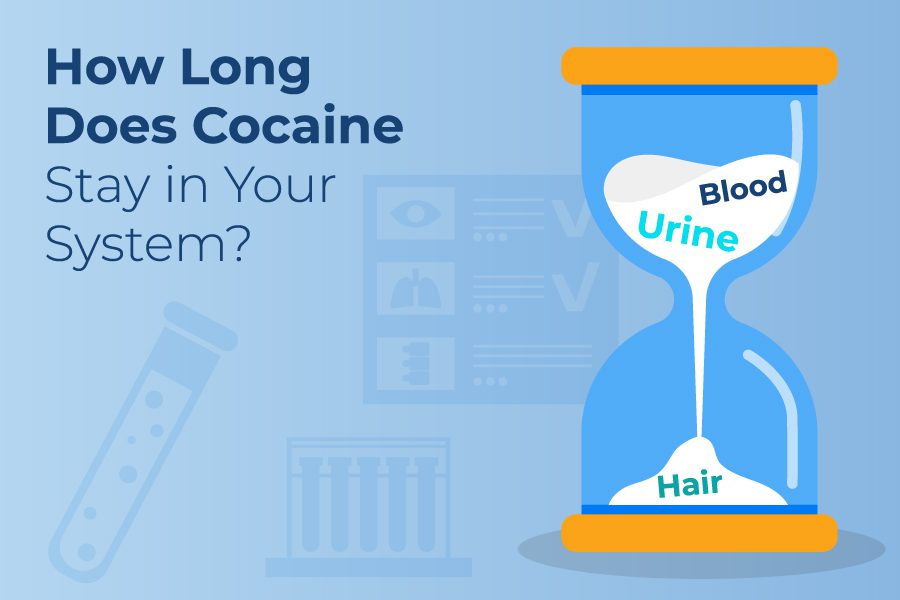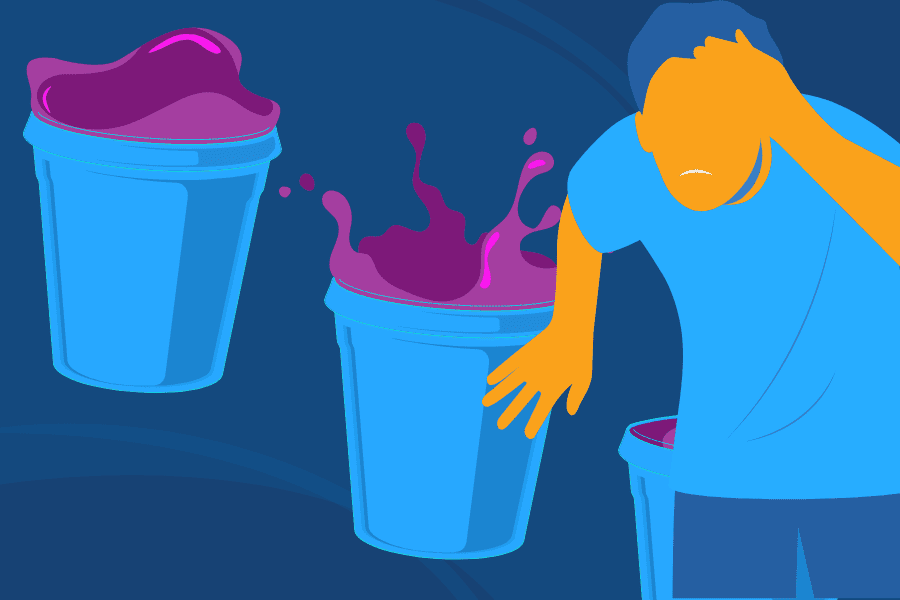How Does Cocaine Get Processed in the Body
What Is the Cocaine Half-Life?
The half-life of cocaine is usually about one hour for most people.
There are a lot of different factors that may influence cocaine’s half-life, causing it to be slightly different for different people.
These factors include how long the person has been using cocaine, the method of how they are using the drug and the person’s metabolism.
If someone has been chronically using cocaine for a long period of time, it will typically take longer for the drug to be eliminated from their body.
Some people may also have slower metabolic rates, which can affect how long it takes for their body to process and eliminate cocaine.
Injecting or smoking cocaine will cause more intense effects but will typically cause the drug to be processed and eliminated faster.
However, snorting the drug or taking it orally can have the opposite effect.
With snorting or oral consumption, the effects won’t be as immediate, but it will take longer for the drug to be eliminated from the body.
How Does the Brain Process Cocaine?
Cocaine changes the way that the brain processes different chemical signals, particularly dopamine. This is the chemical in your brain that is responsible for feelings of pleasure and reward.
Cocaine blocks dopamine reuptake by binding to the dopamine transporters. This causes a dopamine buildup, which plays a role in that intense euphoric-like high that people experience while using cocaine.
Cocaine also affects other neurotransmitters, particularly serotonin and norepinephrine. These neurotransmitters play important roles in keeping you awake and alert, giving you energy, and regulating your mood.
How Does the Body Get Rid of Cocaine?
The body gets rid of cocaine by breaking it down in the liver.
Cocaine is broken down into something known as benzoylecgonine, along with other metabolites.
Even when a person is no longer experiencing the effects and the cocaine itself is out of their system, these metabolites stick around in the body.
It’s because these metabolites take longer to be eliminated that some drug tests can still detect cocaine even after a long period of time.

Is this blog hitting close to home?
We’re here to help.
Drug Tests and Cocaine Use
How Long Does Cocaine Stay In Your System for a Drug Test?
How long cocaine stays in your system for a drug test depends on how much cocaine you took, how you took the drug, and what kind of drug test you’re taking.
If someone has been using cocaine heavily for a long period of time, then the drug will usually stay in their system longer.
This means that it could be detected on a drug test for a longer period of time. Your metabolic rate can also affect how long cocaine stays in your system and how it can be detected on a drug test.
Different drug tests have different detection times for cocaine. Some examples of the different kinds of tests that can detect cocaine include blood tests, urine tests, hair tests, and saliva tests.
What Is the Cutoff for Cocaine in Drug Testing?
The cutoff for cocaine in drug testing, or the minimum amount of cocaine that it takes to cause a positive drug test result, depends on the type of drug test that is being used.
A Urine test is the most common way to test for cocaine. With a urine test, the cutoff for cocaine would be 100mg/mL.
How Long Does Cocaine Stay In Your Blood?
A blood test can typically detect cocaine in your blood for up to 24 hours after you last took the drug.
How Long Does Cocaine Stay In Your Urine?
A urine test is one of the most common ways used to detect cocaine, and it can usually detect cocaine in your urine from anywhere from 2 days to 4 days.
How Long Does Cocaine Stay In Hair?
A hair drug test involves using a hair follicle to test for cocaine, and it can detect cocaine for a very long amount of time, typically around 90 days after it was last used.
How Long Does Cocaine Stay In Saliva?
A saliva drug test can usually detect cocaine in saliva for 1 to 2 days after cocaine was last used.









